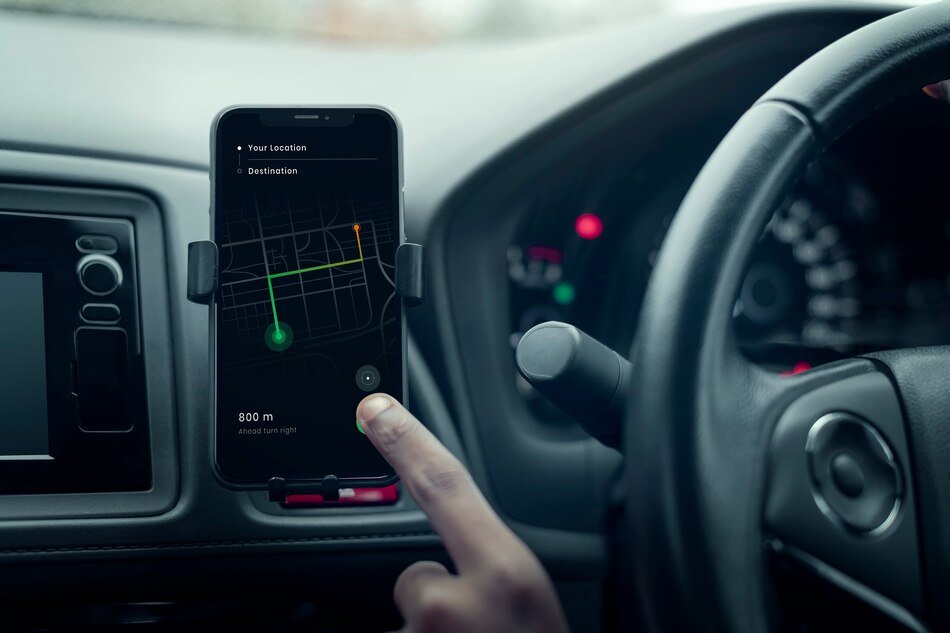Enhancing Route Efficiency And Optimization
GPS technology may improve Africa logistics route optimization and efficiency. Logistics businesses may use GPS to follow vehicles and traffic in real time. This information helps design the most effective routes saving time and gasoline. GPS enabled routing systems may avoid traffic road closures and dangerous situations improving delivery reliability and speed. These solutions reduce operating costs accelerate delivery and improve service quality for logistics firms. Accurate route optimization improves resource allocation and planning making logistical operations cost effective and efficient.
Enhancing Fleet Monitoring And Management
Fleet management is essential for logistical optimization and GPS technology helps. GPS trackers let corporations track their fleet position speed and performance. This lets logistics managers track truck utilization spot anomalies and make data driven choices. GPS tracking may detect driving behaviour like forceful braking or speeding affecting safety and fuel economy. Real time tracking helps schedule maintenance and repairs decreasing downtime and increasing vehicle life. GPS fleet management improves operational efficiency and resource use.
Improved Supply Chain Visibility And Coordination
GPS provides real time product movement data improving supply chain visibility and coordination. Due to this openness suppliers and distributors can track and monitor shipments. Visibility improves logistical coordination delay prediction and inventory management. GPS may help firms prepare for timely unloading and processing by providing exact arrival timings. Increased coordination reduces interruptions optimizes inventory management and boosts supply chain efficiency. GPS visibility improves communication logistical reliability and responsiveness.
Security And Theft Prevention
Africa logistics industry benefits from GPS technology for security and theft prevention. Companies may prevent theft by placing GPS trackers on high value items and vehicles. Real time tracking allows location updates which helps recover stolen items and reduce losses. GPS geofencing lets firms define virtual limits and get notifications when assets leave them. This proactive protection protects important cargo and deters theft. GPS based security protects assets and decreases theft and loss costs.
Rural And Remote Logistics Support
GPS technology is helpful for logistics in rural and isolated Africa where infrastructure is scarce. GPS helps discover and reach hard to reach sites enhancing delivery efficiency on weak road networks. GPS charts and routes enable logistics businesses to negotiate rugged terrain and deliver supplies to isolated regions. This is necessary to provide medical and agricultural supplies to disadvantaged areas. GPS technology also helps rural logistics strategies improve service delivery and supply chain connection.
Facilitating Real Time Customer Updates And Communication
GPS technology provides real time shipping status updates and communication improving customer experience. Customers may get precise and quick order location and delivery estimates using GPS tracking devices. By informing customers during delivery transparency decreases uncertainty and boosts satisfaction. Logistics businesses may utilize GPS data to deliver SMS or mobile app alerts and updates enabling consumers to watch their shipments in real time. Effective communication and real time updates help manage customer expectations resolve problems quickly and build logistics service confidence.
Optimizing Resource Allocation And Cost Management
Logistics efficiency depends on resource allocation and cost control which GPS technology helps. By studying GPS data companies may better comprehend vehicle use fuel consumption and operating expenses. This data informs fleet size maintenance and fuel management choices. GPS monitoring helps discover unused cars assisting organisations in managing their fleet and cutting idle expenses accurate trip distance and route data aid budgeting and cost control improving resource management and cost savings.
Enhancing Delivery Accuracy And Reducing Errors
GPS technology helps logistics operations improve delivery accuracy and reduce mistakes. GPS devices assist in delivery to the correct locations and minimize misrouting by delivering exact position data. This precision is crucial in metropolitan regions with complicated street layouts or rural locations with limited address systems. GPS tracking reduces delivery mistakes and missed addresses by helping drivers navigate and find the best routes. Delivery accuracy boosts customer happiness improves logistics and lowers return and re delivery costs.
Supporting Data Driven Decision Making
GPS technology produces extensive data for logistical decision making. GPS data may reveal route efficiency driver performance and delivery patterns. This data driven strategy reveals trends optimization possibilities and improvement areas. Using past GPS data may assist in estimating demand designing better routes and optimizing delivery schedules. GPS data helps firms make strategic choices increase operational performance and boost logistical efficiency.
Integrating With Other Technologies For Enhanced Logistics Solutions
GPS technology may be used with other modern technologies to improve logistics. GPS and IoT devices like temperature sensors and RFID tags provide more precise package tracking. GPS tracks position while IoT sensors monitor perishable items in real time. GPS plus AI and machine learning algorithms improve route planning predictive maintenance and demand forecasting. This technology synergy strengthens Africa logistics system improving efficiency accuracy and performance.
Improving Emergency Logistics And Disaster Response
GPS technology helps improve disaster response and emergency logistics in Africa where natural catastrophes may interrupt supply networks and relief delivery. GPS data helps organize rescue operations provide vital supplies and manage relief efforts during calamities. GPS tracking helps emergency personnel reach isolated or damaged locations quickly. It also offers real time help distribution route monitoring and resource management in changing scenarios. GPS integration with crisis management software helps logistics firms and relief groups react quickly to disasters and provide aid.


